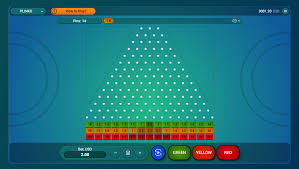How to Start Game Development: Tools, Languages, and Design Tips
Mastering the Art of Game Development: A Comprehensive Guide for Programmers
Game development is a fascinating field that combines creativity, technical expertise, and problem-solving skills. As a programmer, venturing into game development can be a rewarding experience, offering a unique opportunity to bring your ideas to life and entertain millions of players worldwide. With the rise of indie game development and the increasing popularity of gaming platforms, the demand for skilled game developers has never been higher. Whether you’re interested in creating a simple plinko game or a complex, open-world adventure, this guide will provide you with a comprehensive overview of the game development process and the essential skills required to succeed in this exciting field.

Basics of Game Development
Before diving into the world of game development, it’s essential to understand the fundamental concepts and principles that govern this field. Game development involves a combination of programming languages, software tools, and design techniques. As a programmer, you’ll need to familiarize yourself with languages such as C++, Java, or Python, and learn how to use popular game engines like Unity or Unreal Engine. You’ll also need to understand the basics of game design, including game mechanics, level design, and user experience. For example, when creating a plinko game, you’ll need to consider factors such as ball physics, collision detection, and scoring systems to create an engaging and challenging experience for players.
Choosing the Right Game Engine
Selecting the right game engine is a critical decision that can make or break your game development project. With so many options available, it’s essential to consider factors such as performance, scalability, and ease of use. Unity and Unreal Engine are two of the most popular game engines, each with its strengths and weaknesses. Unity is known for its versatility and ease of use, making it an excellent choice for 2D and 3D games, as well as virtual reality (VR) and augmented reality (AR) experiences. Unreal Engine, on the other hand, is a powerful engine that offers advanced features and tools, making it a popular choice for high-performance games and simulations. When choosing a game engine, consider the type of game you want to create, your programming skills, and the level of complexity you’re comfortable with.
Programming Languages for Game Development
Programming languages play a crucial role in game development, and the choice of language depends on the game engine, platform, and type of game you’re creating. C++ is a popular choice for game development, particularly for high-performance games that require direct access to hardware resources. Java is another popular language, widely used for Android game development and other platforms. Python is also gaining popularity, thanks to its ease of use and versatility, making it an excellent choice for indie game development and prototyping. When selecting a programming language, consider factors such as performance, ease of use, and the availability of libraries and resources.
Game Design Principles
Game design is a critical aspect of game development, and it involves creating engaging, challenging, and rewarding experiences for players. Good game design principles include simplicity, clarity, and consistency, as well as a deep understanding of player psychology and behavior. When designing a game, consider factors such as game mechanics, level design, and user interface, and strive to create an immersive and engaging experience that keeps players coming back for more. For example, in a plinko game, the design should focus on creating a sense of tension and anticipation, as players watch their balls bounce and fall through the pegboard.
The Importance of Testing and Debugging
Testing and debugging are essential steps in the game development process, ensuring that your game is stable, functional, and free of errors. Testing involves verifying that your game meets the required specifications and functions as expected, while debugging involves identifying and fixing errors, bugs, and other issues that may arise during development. When testing and debugging your game, consider factors such as performance, compatibility, and user experience, and use tools such as debuggers, profilers, and testing frameworks to identify and fix issues quickly and efficiently.
The Role of Artificial Intelligence in Game Development
Artificial intelligence (AI) is playing an increasingly important role in game development, enabling developers to create more realistic, engaging, and dynamic experiences for players. AI can be used to create intelligent NPCs, adaptive difficulty systems, and personalized gameplay experiences, among other applications. When using AI in game development, consider factors such as performance, complexity, and realism, and use techniques such as machine learning, neural networks, and decision trees to create sophisticated and believable AI behaviors.
The Future of Game Development
The future of game development is exciting and rapidly evolving, with new technologies, platforms, and business models emerging all the time. Virtual reality (VR) and augmented reality (AR) are becoming increasingly popular, offering new opportunities for immersive and interactive experiences. Cloud gaming is also on the rise, enabling players to access high-quality games on any device, without the need for expensive hardware. As a game developer, it’s essential to stay up-to-date with the latest trends, technologies, and innovations, and to be prepared to adapt and evolve your skills and knowledge to remain competitive in this rapidly changing field.
Conclusion
Game development is a rewarding and challenging field that requires a unique combination of technical, creative, and problem-solving skills. By mastering the fundamentals of game development, including programming languages, game engines, and design principles, you can create engaging, challenging, and rewarding experiences for players. Whether you’re interested in creating a simple plinko game or a complex, open-world adventure, this guide has provided you with a comprehensive overview of the game development process and the essential skills required to succeed in this exciting field. Remember to stay focused, keep learning, and always be prepared to adapt and evolve your skills and knowledge to remain competitive in the rapidly changing world of game development.







